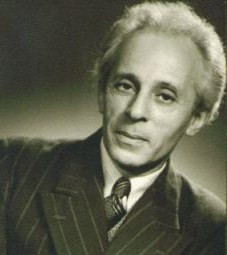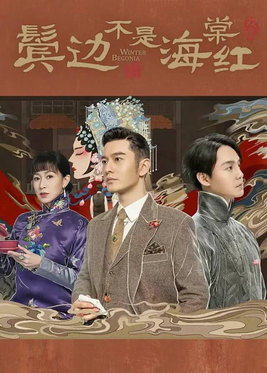Yuen Biao is a Hong Kong actor, martial artist and stuntman. He specialises in acrobatics and Chinese martial arts and has also worked on over 80 films as actor, stuntman and action choreographer. He was one of the Seven Little Fortunes from the China Drama Academy at the Peking Opera School along with his "brothers" Sammo Hung and Jackie Chan. Yuen Biao has appeared in over 130 films. He has played roles in eight television series for the Hong Kong channel TVB.

Peking opera, or Beijing opera, is the most dominant form of Chinese opera, which combines music, vocal performance, mime, dance and acrobatics. It arose in Beijing in the mid-Qing dynasty (1644–1912) and became fully developed and recognized by the mid-19th century. The form was extremely popular in the Qing court and has come to be regarded as one of the cultural treasures of China. Major performance troupes are based in Beijing, Tianjin and Shanghai. The art form is also preserved in Taiwan, where it is also known as Guójù. It has also spread to other regions such as the United States and Japan.

Yuen Wah is a Hong Kong action film actor, action choreographer, stuntman and martial artist who has appeared in over 160 films and over 20 television series.

Theatre of China has a long and complex history. Traditional Chinese theatre, generally in the form of Chinese opera, is musical in nature. Chinese theatre can trace its origin back a few millennia to ancient China, but the Chinese opera started to develop in the 12th century. Western forms like the spoken drama, western-style opera, and ballet did not arrive in China until the 20th century.

The Generals of the Yang Family is a collection of Chinese folklore, plays and novels on a military family from the earlier years of imperial China's Song Dynasty (960–1279). The stories recount the unflinching loyalty and the remarkable bravery of the Yangs as they sacrificed themselves to defend their country from foreign military powers, namely the Khitan-ruled Liao Dynasty (907–1125) and Tangut-ruled Western Xia (1038–1227).

Yu Jim-yuen was a Chinese martial artist, actor, teacher and the master of the China Drama Academy, one of the main Peking Opera Schools in Hong Kong from which Jackie Chan, Sammo Hung, Yuen Biao, Yuen Qiu, Yuen Wah, and Corey Yuen received their training. Yuen Woo-ping attended the school for one year as a day student as well. Jim-yuen was also the father of early wuxia actress Yu So-chow, who appeared in more than 150 movies, but his only film was The Old Master (師父出馬), in 1979, as Wen Ren-yang. He died of a heart attack in Los Angeles, California, United States.

The China National Peking Opera Company (CNPOC), originally named the National Peking Opera Theater of China, is one of the national ensembles of performance arts directly under the supervision of the Ministry of Culture of the People's Republic of China. Situated in Beijing, it was founded in January 1955, with opera performer Mei Lanfang as the first president in its history. The current president is Song Guanlin.
Wu Hsing-kuo is a Taiwanese actor of the silver screen and theater, known for both his performance of complex movie roles as much as for his innovative adaptations of Western classics into traditional Peking Opera.

Aaron Avshalomov was a Russian-born Jewish composer. His work included several ballets, two operas, a violin concerto, four symphonies and a flute concerto.
In People's Republic of China (1949–), revolutionary operas or model operas were a series of shows planned and engineered during the Cultural Revolution (1966–1976) by Jiang Qing, the wife of Chairman Mao Zedong. They were considered revolutionary and modern in terms of thematic and musical features when compared with traditional Chinese operas. Many of them were adapted to film.

Hans Hermann Fränkel, usually Anglicized to Hans Frankel, was a German-American sinologist noted for his studies of Chinese poetry and literature and his 25-year tenure as professor of Chinese at Yale University.
Huang Wenbi was a Chinese archaeologist specializing in Xinjiang.

The National Taiwan College of Performing Arts is a public college located in Taipei, Taiwan.

Ouyang Yuqian was a Chinese playwright, Peking opera actor and writer, film screenwriter and director, and drama educator. He is considered by drama historians as one of the three founders of the modern Chinese spoken drama, together with Tian Han and Hong Shen. He was also one of the top Peking opera performers, regarded as a southern counterpart of Mei Lanfang.

Luo Tianyi is a Chinese Vocaloid developed formerly by Bplats, Inc. under the Yamaha Corporation, and was created in collaboration with Shanghai Henian Information Technology Co. Ltd. she was released for the Vocaloid 3 and Vocaloid 4 engines. Her voice is provided by the Chinese voice actress Shan Xin. Considered China's most popular virtual idol, she held a joint concert with pianist Lang Lang at the Shanghai's Mercedes-Benz Arena in March 2019.
The sheng is a role type in Chinese opera for dignified and respectable male characters such as Confucian scholars, nobles, or heads of households. They may be portrayed by either male actors or actresses.
Li Shengsu is a Chinese Peking opera singer-actress who plays Dan roles. She began performing traditional Chinese opera from a young age and is a student of Mei Baojiu and other famous opera performers. She is widely considered a Peking opera superstar and has many renown performances. Currently, Li Shengsu is the director of Troupe One of China National Peking Opera Company. Li also holds positions in other organizations as well, including being a member of the Chinese People's Political Consultative Conference. She has received multiple awards and recognition for her performance in Peking opera.
Shi Yihong, known as Shi Min before 2002, is a Chinese Peking opera singer-actress who plays Dan roles. A Plum Blossom Prize winner, Shi Yihong is considered a Peking opera superstar who not only excels in both vocal and acrobatic roles, but is always experimenting and expanding her repertoire despite resistance from conservative elements. Shi Yihong is a member of the Shanghai Jingju Theatre Company, but she also established her own production company in 2016.
Wang Guangfa is a Chinese physician. He is a respiratory expert at Peking University First Hospital.

Winter Begonia is a 2020 Chinese television series starring Huang Xiaoming, Yin Zheng, and Charmaine Sheh, based on Shui Ru Tian Er's BL web novel of the same name. It aired exclusively on iQiyi and tells the story of the close relationship between a shrewd businessman and a Peking opera genius right before the World War II. While the original web novel depicted the relationship between the two main men as romantic, the adaptation changed this depiction into a "bromance".












